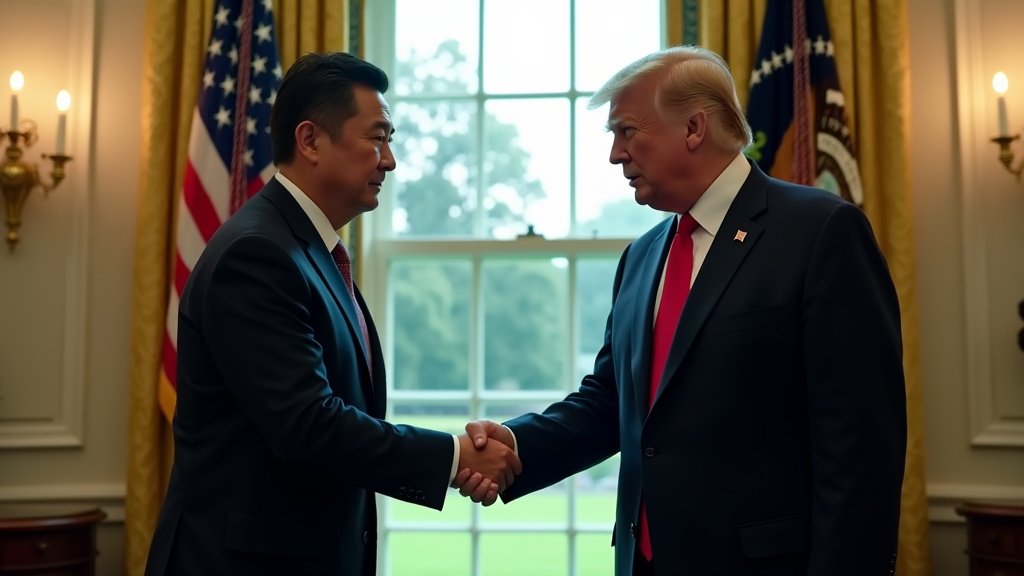Indirect negotiations between Hamas and Israel, aimed at securing a ceasefire and the release of hostages, have commenced in Egypt, marking a critical juncture in the ongoing conflict. The high-stakes talks, taking place in the Red Sea resort town of Sharm El Sheikh, are centered around a comprehensive 20-point plan proposed by former U.S. President Donald Trump. Mediated by Egypt, Qatar, and the United States, these discussions convene on the eve of the second anniversary of the October 7, 2023, attacks that ignited the devastating war.
Negotiations Convene Amidst U.S. Diplomatic Push
Delegations from both Hamas and Israel, alongside international mediators, have converged in Egypt, signaling a renewed, albeit fragile, push for peace. The current negotiations are built upon a US-led initiative that Hamas has indicated it would conditionally accept, agreeing to key points such as the release of all hostages—living and deceased—in exchange for Palestinian prisoners held by Israel. This acceptance has been met with cautious optimism, with President Trump urging all parties to “move fast” to finalize the deal.
The Framework: A Hostage-For-Prisoner Exchange
The core of the proposed deal involves a phased exchange: Hamas would release the remaining 48 hostages, approximately 20 of whom are believed to still be alive, within 72 hours. In return, Israel would release hundreds of Palestinian prisoners, including those serving life sentences and individuals detained since the conflict began. The plan also outlines a phased withdrawal of Israeli forces from Gaza, with the initial stage focusing on establishing an “initial withdrawal line” to facilitate the hostage and prisoner exchanges.
Sticking Points and Ongoing Hostilities
Despite the progress, significant obstacles remain that threaten to derail the negotiations. A major point of contention is the disarmament of Hamas, a key Israeli demand that is central to Trump’s plan but has not been definitively agreed upon by the militant group. Hamas has insisted that disarmament cannot precede the end of the Israeli occupation and has demanded a say in Gaza’s future governance, a role Trump’s plan stipulates the group would not have. Furthermore, even as talks begin, Israeli airstrikes and military operations have continued across Gaza, raising concerns among mediators and human rights groups about the feasibility of hostage releases amidst ongoing combat.
Global Reactions and Humanitarian Concerns
The unfolding diplomatic efforts have garnered international attention, with many expressing hope for an end to the more than two years of conflict that has resulted in over 67,000 Palestinian deaths and a severe humanitarian crisis. UN Secretary-General António Guterres welcomed Hamas’s readiness to release hostages and urged all parties to seize the opportunity to end the tragic conflict. Meanwhile, global protests calling for a ceasefire and an end to the violence continue, highlighting the widespread international concern over the ongoing situation.
A Momentous Opportunity
As negotiators gather in Egypt, the world watches with bated breath. The current talks represent a significant development, fueled by international pressure and a proposed framework that, if fully embraced and implemented, could bring about an end to the protracted war in Gaza and pave the way for a broader regional peace. However, the deep-seated challenges and the continued military actions underscore the precarious nature of these negotiations, with the outcome remaining uncertain. The coming days will be crucial in determining whether this trending global news marks a turning point towards lasting peace or succumbs to the persistent obstacles that have plagued previous efforts.




